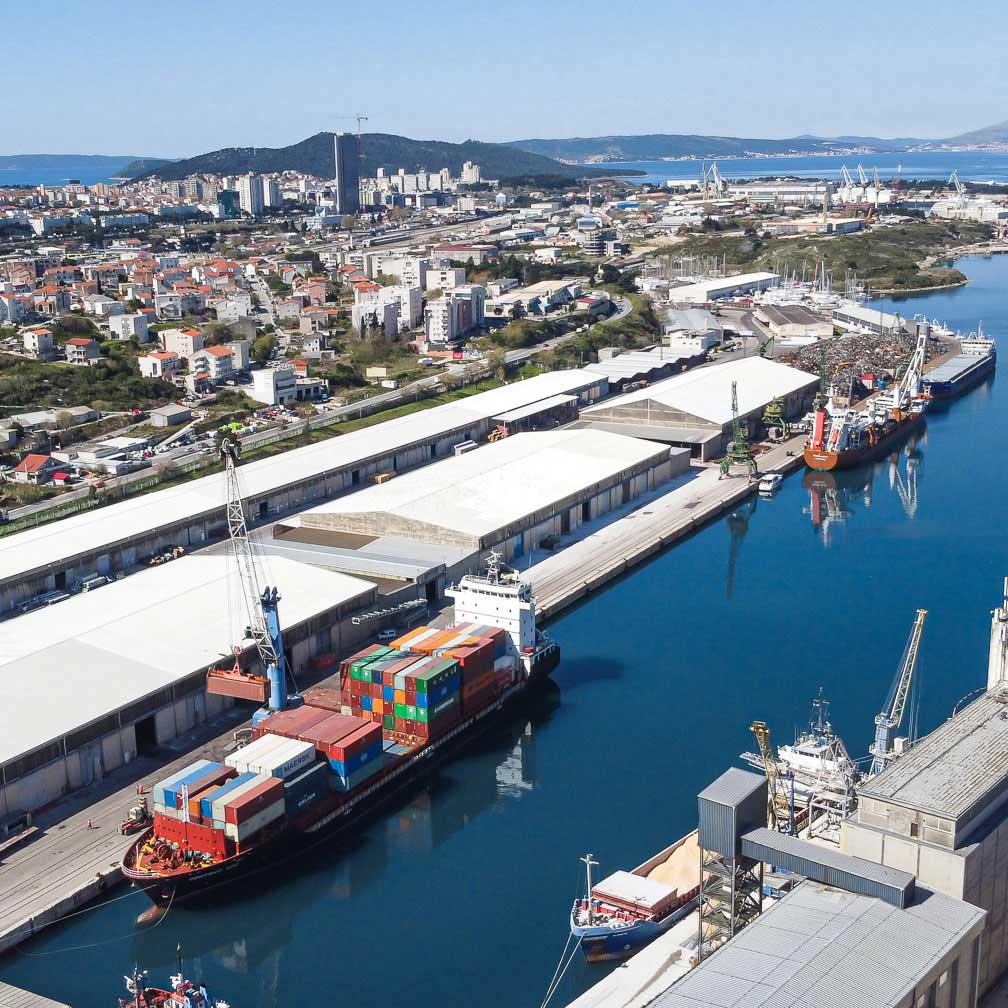Mission & Vision
Mission
The company’s mission is to be a reliable business partner that constantly adapts to the needs of its customers, while providing a high-level port-transport service with a minimum environmental impact.
Vision
Establishment of relationships and communications with business partners and the wider community in order to develop, expand and meet their needs and requirements.
In the long run, Port of Split will operate with the tendency to obtain full satisfaction of its business partners with the achieved quality of services provided, growth of shareholders’ assets, increase in the scope of work to the level of full capacity utilization, modernization aimed at reducing costs and humanizing work, environmental protection in line with EU standards and constant encouragement of our worker’s creativity and responsibility.


Quality Management
In 2007, Port of Split established and confirmed the quality management system according to the 9001 standard, improving it by continuously meeting the set business goals and quality goals. Through monitoring and measurement of various performance parameters, we have achieved continuous improvements in the provision of our services.
The Quality Control Service in the Port of Split has been performing constant inspection of the ISO 9001 Standard defined requirements, legal regulations and ordinances. In an effort to meet the quality of food transhipment and storage services, in 2016 the Company decided to introduce a Food Safety Management System – HACCP.
The introduction of the HACCP system aims to permanently prove its own business capacity, improve efficiency, and provide a uniform quality of service in the field of transhipment and food storage.
Got any questions of inquiries?
Please don’t hesitate to contact us
Port History
It is believed that the foundations for the port of Split were laid during the time when Salona was a city of Dalmatian Illyrians. This former thriving seaport in a favourable geographic position on the eastern Adriatic coast which had attracted Greek sailors and merchants was later conquered by the Romans while expanding their empire.
The Split of the 12th century, due to its geographic position, had a developed land trade by caravan routes as well as maritime trade through its port. Split is one of the few cities that had roads leading to the hinterland enabling a combination of land and maritime trade and transport.
In the eighties and nineties of the 19th century, the traffic in the port of Split sharply increased due to the phylloxera-disease-devastated French vineyards, and there was a great demand for Dalmatian wine. At the same time a railway was built, which in 1925 was connected to the Rijeka-Zagreb railway via Gospić, thus connecting Split with the continental centres.
The port of Split reached its peak in cargo transhipment in 1988, when about 2 million tons were transhipped in the Split port basin. In the northern port alone the port company transhipped 835,000 tons of various goods.
Working Hours
Office: 7AM - 3PM (Mon-Fri)
Operations: 0 - 24h
Contact
+385 21 508 729




